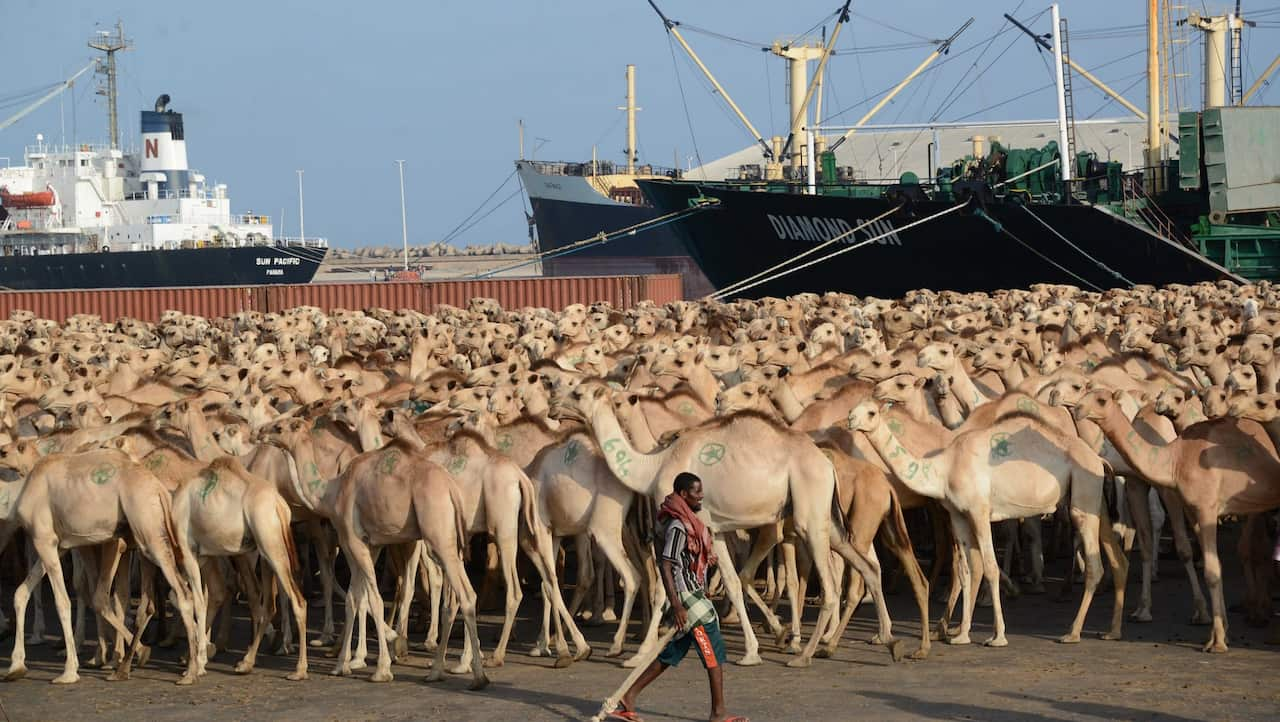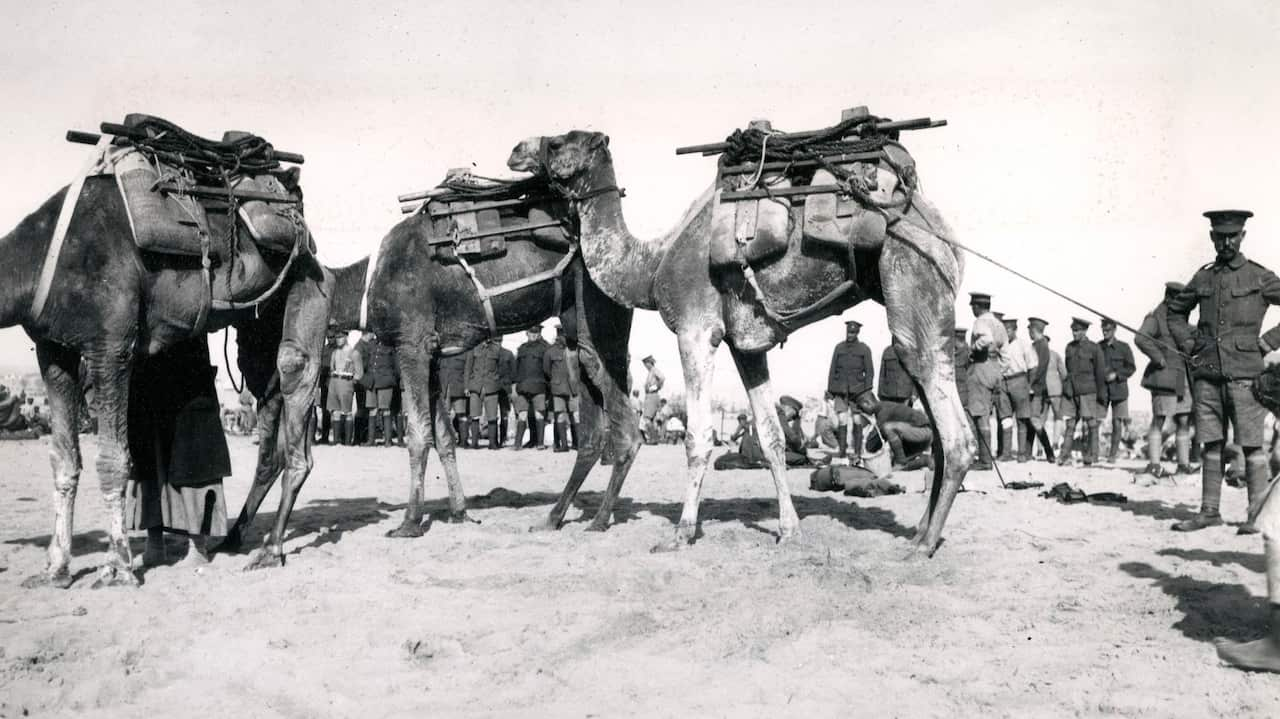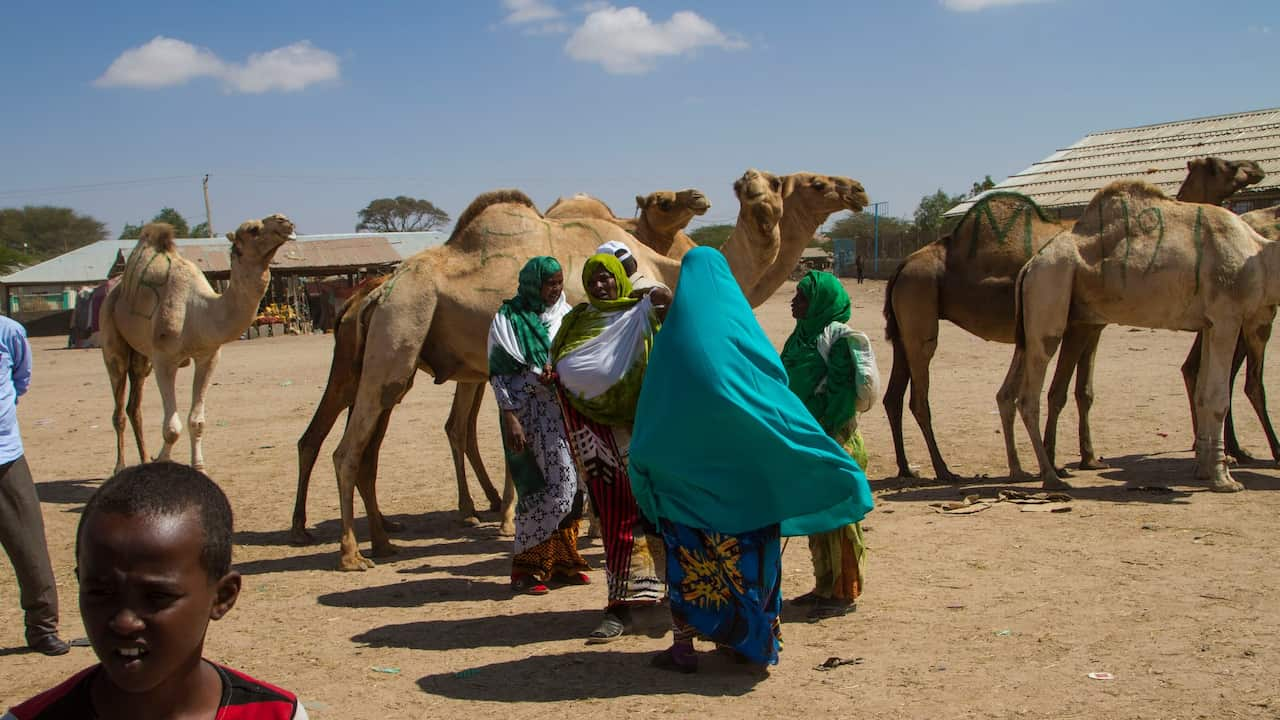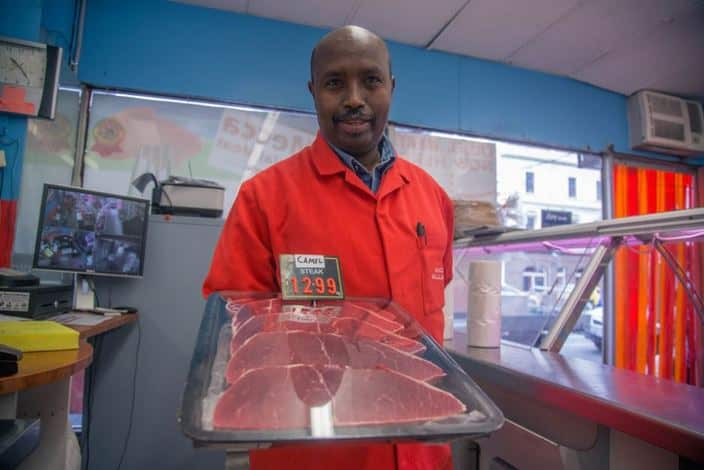Somalis have expressed concern over the reports of the culling of thousands of camels in Australia.
Earlier in January, Aboriginal leaders in South Australia's APY Lands authorised a five-day aerial cull of 10,000 wild camels.
Members of the Somali community around the globe have called on the Australian government to end the practice and export the animals to the Horn of Africa.
Livestock is the backbone of the Somali economy with more than 65 per cent of the population engaged in the industry, according to the United Nations Food and Agriculture Organisation.
Of the world's estimated 14 million camels, Somalia has the largest number of more than seven million. In northern Somalia, who was under British colony in the 19th century, the British immediately recognised the affinity between the Somali people and their camels and created the "Somali Camel Constabulary".
In northern Somalia, who was under British colony in the 19th century, the British immediately recognised the affinity between the Somali people and their camels and created the "Somali Camel Constabulary". Today some in what is now the self-declared republic of Somaliland believe the camels in Australia originated from Somalia when British seized herds of camels and sent them to Australia.
Today some in what is now the self-declared republic of Somaliland believe the camels in Australia originated from Somalia when British seized herds of camels and sent them to Australia.

Hundreds of camels wait at Mogadishu's seaport to be exported to Saudi Arabia on March 8, 2013. Source: AFP via Getty Images

Camel transport (Somali camels) for Suez Canal defences at El Kubri, Egypt, during the First World War. Date: November 1916 Source: Robert Hunt Library/Imperial War Museum
The chair of Somaliland Camel Herders Association, Mustafe Cali Deeq, said news of the latest camel cull is distressing.
"We are deeply saddened by the culling of 10,000 camels in Australia and are calling on the Australian government to immediately stop the culling and consider alternative ways to address the issues created by the growing numbers of camels," he said.
On social media, others expressed similar sentiments.
"Send it to us so we can take care of them," Eng Mohamed Alfaaiz wrote.
Australian embassies have been contacted by concerned Somalis inquiring whether those camels can be transported to Africa, according to Saadiq Haji Hashi, an Australian citizen turned politician who returned to Somalia.
In an unrelated interview with SBS Somali, he said he contacted the Australian ambassador to Somalia to express the feeling many Somalis have about camel cull.
"I have written to the Australian ambassador to Somalia calling on [the Australian government] to spare the lives of those camels," he said.
Camels have multiple uses for Somalis and mean everything to them. Camels are used for transport, for their meat and milk. They are also considered acceptable as a form of compensation for the deceased in murder cases.
Camels are not mere livestock but a measure of wealth and status and a key economic source for Somalis. figures indicate that the export of livestock and their products accounts for 80 per cent of the country's foreign exchange.
figures indicate that the export of livestock and their products accounts for 80 per cent of the country's foreign exchange.

HARGEISA, Somalia, DECEMBER 7: Livestock traders chat together in front of a row of camels in the livestock market of Hargeisa. Source: The Washington Post
The Somali-Australian community were also upset by the culling the animal they consider precious.
In North Melbourne, Somali-owned restaurants offer camel meat and milk. This comes as more camel farms are established in Australia to cater to the increasing demands of communities like Somalis in Australia. Melbourne man Suldaan Ahmed Nasir says that he is saddened by the recent cull.
Melbourne man Suldaan Ahmed Nasir says that he is saddened by the recent cull.

Abukar Hersi originally from Somalia says camels are an important part of the Somali culture and diet. Source: (ABC News: Margaret Burin )
"When I first saw the footage of camels being shot, I was so shocked that I couldn't sleep," he says.
While some understand the reasons behind the culling, they still believe there are better ways.
"As you can appreciate for Somalis camels are very valuable livestock, it was the backbone of Somali life," Melbourne man Osman Ali Bariire says.
Others in the community have pointed out the difference in attitudes in the way Australia and Somalia treat camels.
"When you look at how camels are treated in Australia and in Somalia, the contrast couldn't be starker," Melbourne man Suldaan Ahmed Nasir says.
